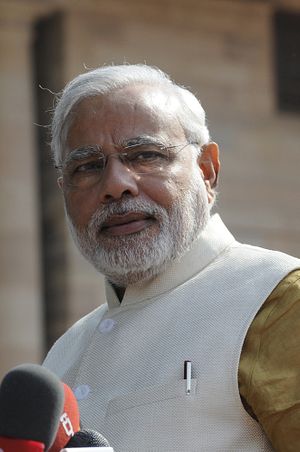Back in September 2014, with less than 24 hours to go before the start of Prime Minister Narendra Modi’s visit to the United States, the U.S. Federal Court of the Southern District of New York issued a summons against the Indian leader for his alleged involvement and complicity in the 2002 Godhra riots. The summons was issued in connection with a lawsuit filed by the American Justice Center (AJC), which represented two survivors of the Gujarat violence in 2002. Modi was the chief minister of the Indian state when the riots occurred. Hundreds of people were killed in the riots, mostly Muslims.
Earlier this week, on Wednesday, a U.S. judge dismissed a lawsuit against Modi after the U.S. government argued that he is immune to accusations as a sitting head of government. Additionally, New York judge Analisa Torres noted that Modi did not come under the jurisdiction of her court. A “sitting head of state’s immunity from jurisdiction is based on the Executive Branch’s determination of official immunity without regard to the specific conduct alleged,” she ruled.
Judge Torres rejected the plaintiff’s claim that the Foreign Sovereign Immunities Act (FSIA) did not cover Modi as he held the position of chief minister at the time of the riots. Additionally, she ruled that the FSIA covered individual government officials, not merely states.
According to the Hindustan Times, Joseph Whittington, the president of the AJC, had noted earlier that even if the case was thrown out, it would mark a victory due to its “symbolism.”
The AJC’s initial filing claimed that Modi condoned crimes against humanity, extra-judicial killings, and torture against victims of the 2002 riots in Gujarat, who were mostly Muslims. The filing of the lawsuit was widely publicized in India during Modi’s U.S. visit, drawing criticism from the prime minister’s supporters. Modi’s U.S. trip was the first by the Indian leader since he was denied a U.S. visa in 2005 over his alleged involvement int he riots.
As a candidate for prime minister and even as chief minister, Modi denied all accusations made against him over his role in the riots. The 2002 riots have become a constant point of emphasis for the prime minister’s domestic and international critics. Modi, who leads India’s Hindu nationalist Bharatiya Janata Party (BJP), is sometimes portrayed as hostile to India’s religious minorities.
Significantly, the decision to throw out the case comes ahead of U.S. President Barack Obama’s scheduled visit to India at the end of January to attend India’s Republic Day celebrations as the chief guest. The visit will be the U.S. president’s second to India during his time in office.

































